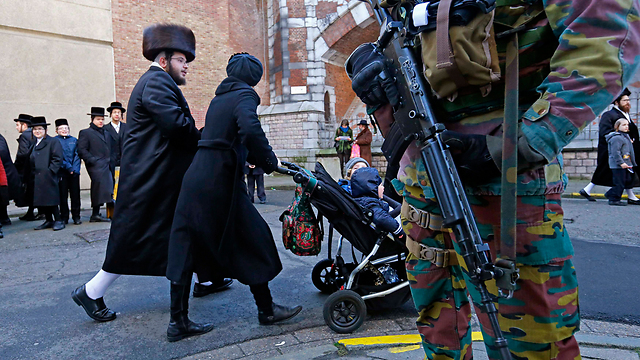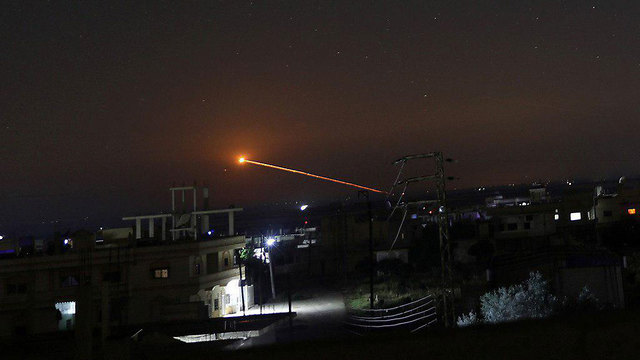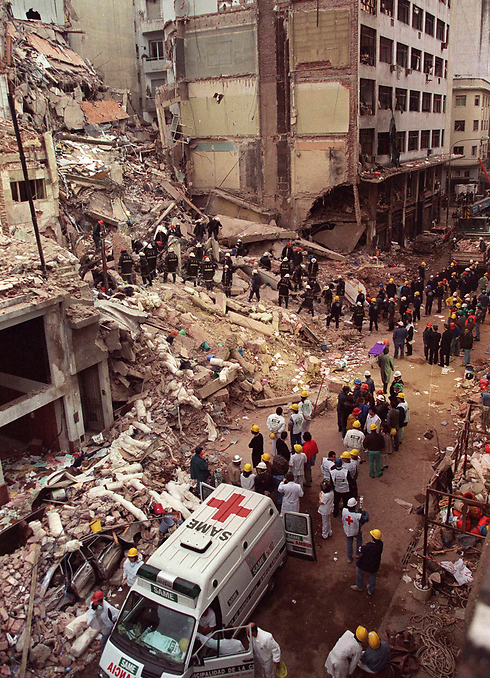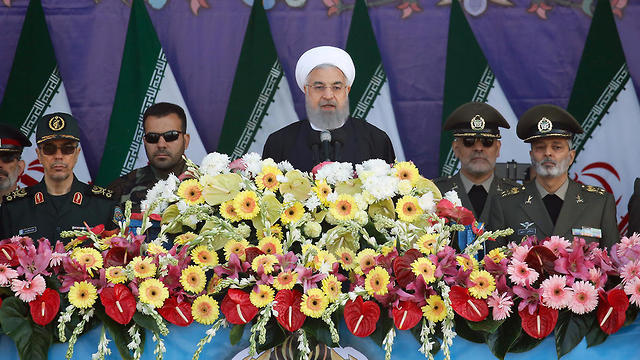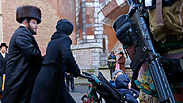
Soldiers defending Jewish school in Belgium
צילום: רויטרס
Security of Israeli institutions abroad boosted for fear of Iranian retaliation
Concern over Iranian retaliation to Israel's attack on its men and installations in Syria prompts local authorities to heighten security of Israeli and Jewish institutions likely to be targeted by Iran-backed terrorists.
The security of Israeli and Jewish institutions around the world has been greatly boosted in recent days for fear that Iran, frustrated by its failed missiles launch on Israeli bases at the Golan Heights and the following Israeli retaliation on its installations in Syria, will change its strategy and attempt to harm Israelis abroad.
Israeli embassies, synagogues, Jewish schools and other institutions saw a greatly enhanced presence of security personnel patrolling the compound, while Israeli emissaries abroad were instructed to show great vigilance and change their routine in order to make it harder for potential terrorists to target them.
Explicit requests to increase the security of Jewish and Israeli institutions were even made to certain local authorities in specific places deemed by Israel as likely to be chosen by Iran for such an attack, such as South America, Africa and certain parts of Asia, where Iran and its proxies have a developed infrastructure.
Iran vowed retaliation after a suspected Israeli air strike last month killed seven of its military personnel in a Syrian air base, raising initial concerns for an attack directed against Israel's representative offices around the world, using its proxies or allies, such as Hezbollah or other Shiite militias, to carry it out.
A large scale terrorist attack orchestrated by the Islamic Republic is now considered a likely possibility by Israel.
And it won't be the first time it happened.
While the 1994 AMIA bombing in Buenos Aires, which claimed the lives of 85 people, is the most notorious Iran-attributed attack on Israelis abroad, such aggression is far from rare. According to the Meir Amit Intelligence and Terrorism Information Center, six such attacks took place in the span of just six months between May 2011 and February 2012.
In May 2011, an assassination attempt was carried out in the heart of Istanbul on the Israeli consul, David Kimchi. The attempt failed, but resulted in the injury of eight Turkish citizens. According to the Italian Corriere della Sera, the Turkish authorities concluded that the attempted assassination had been carried out by three Hezbollah operatives who had arrived from Beirut.
On February 13, 2012, an explosive charge was attached to a car belonging to the Israeli embassy in Tbilisi, capital of Georgia. The driver of the car, a local worker, noticed the device dragging from his car and immediately summoned police sappers who neutralized the charge. Israel accused Iran and Hezbollah of responsibility for the attack. Iran, though, denied any involvement, brazenly accusing Israel of staging the attack to incite the world against it.
That same day, a motorcyclist attached an explosive device to the car of an Israeli Ministry of Defense representative in New Delhi. The ensuing blast seriously wounded both him and his wife.
Similar attacks also occurred in Azerbaijan and twice in Thailand, some even conclusively proven to have been carried out by Iranian and Hezbollah operatives and leading to the exposure of trained and armed terror cells.
Despite the fact that lessons have been learned, it is clear to all that security is not foolproof. Still, efforts are being made to ensure that such attacks, should they reoccur, are deterred, or at the very least thwarted.
The Foreign Ministry refused to comment on this report.










